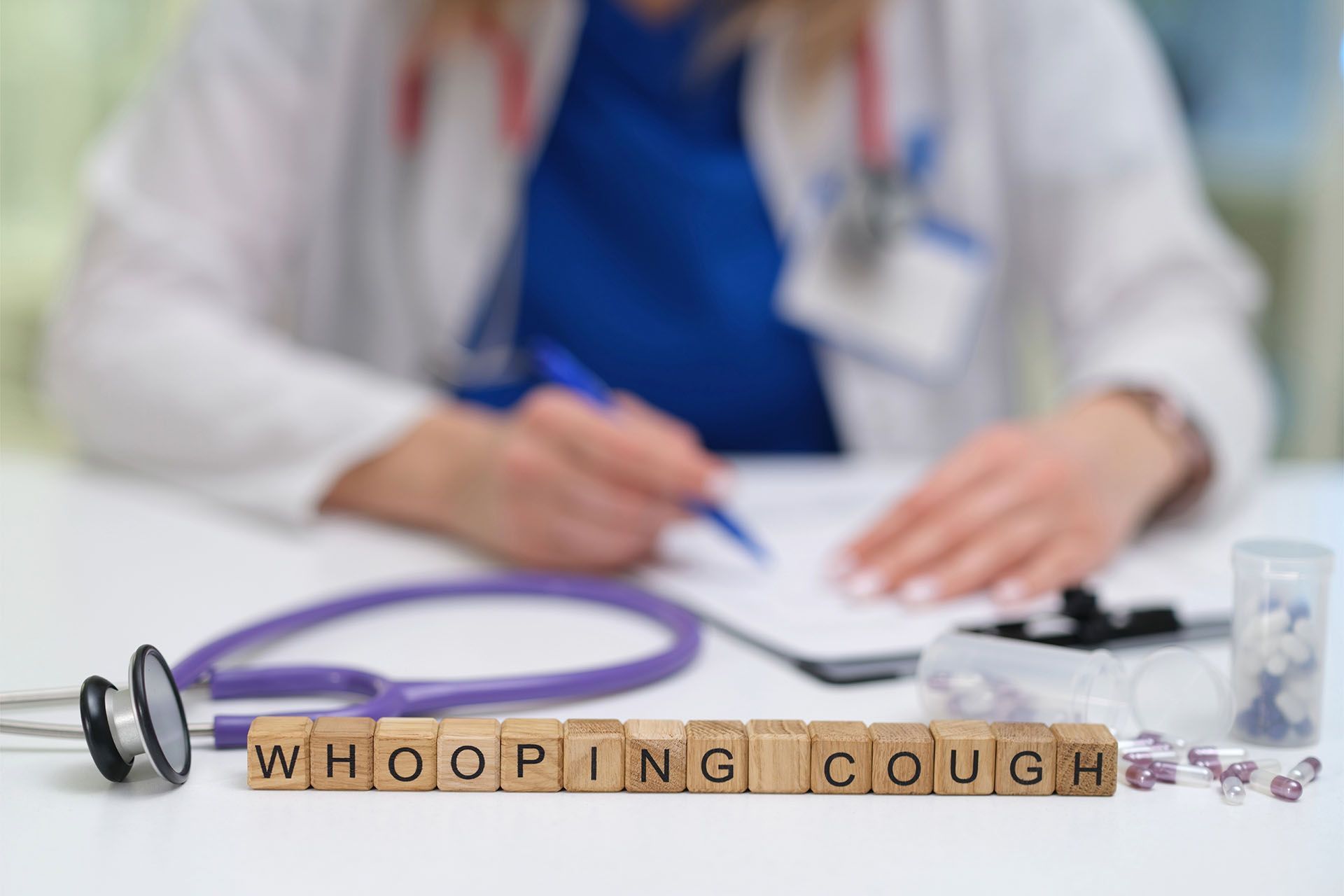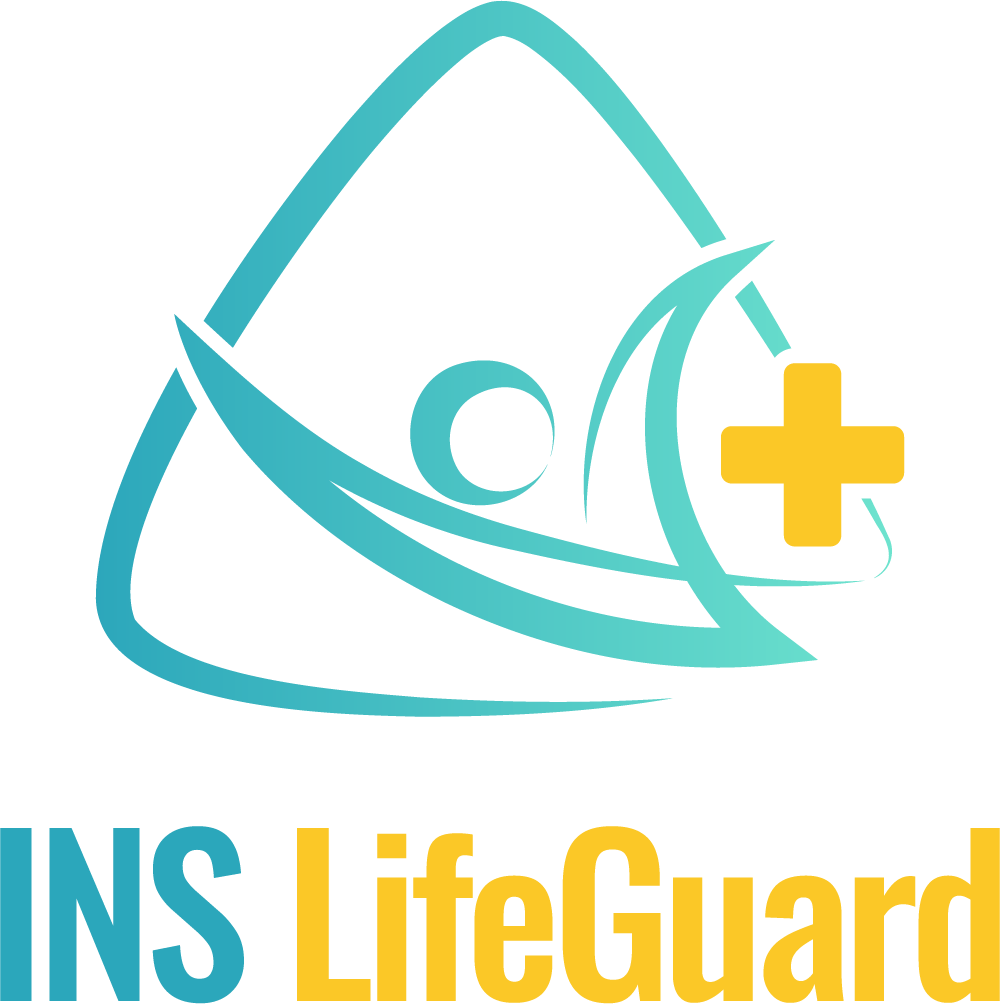Have a Question?
Understanding Whooping Cough: Symptoms, Causes, and Prevention Tips

Australia is currently experiencing its worst whooping cough outbreak in more than 30 years. In 2024, the country recorded over 57,000 cases, the highest number since national monitoring began in 1991, and the trend has continued into 2025. With thousands of cases already reported this year, health experts are urging renewed focus on timely vaccinations and awareness.
The rise in cases has been linked to declining on-time vaccination rates, particularly among adolescents and adults, as well as increased testing and reduced natural immunity following COVID-19. In some regions, such as New South Wales, Western Australia and parts of Queensland, case rates are exceptionally high.
Whooping cough, medically known as pertussis, is a highly contagious respiratory infection that can affect anyone but is especially dangerous for young babies and those with compromised immune systems. Caused by the bacterium
Bordetella pertussis, this infection leads to severe coughing fits, breathing difficulties, and, in some cases, life-threatening complications.
In this article, we’ll explore the key symptoms, causes, and prevention strategies for whooping cough, helping you recognise the condition early and take steps to protect yourself and your loved ones.
What Is Whooping Cough?
Pertussis, also known as whooping cough, is a serious illness. It is a bacterial infection of the respiratory tract, known for causing violent coughing spells that can last for weeks or even months. The condition gets its name from the high-pitched “whoop” sound that some people – especially children – make when they inhale sharply after a coughing fit.
Whooping cough typically progresses through three stages:
- Catarrhal stage (1–2 weeks): Mild cold-like symptoms such as runny nose, sneezing, and low-grade fever.
- Paroxysmal stage (1–6 weeks): Intense coughing fits, sometimes followed by vomiting or exhaustion. The characteristic “whoop” often appears here.
- Convalescent stage (several weeks): Gradual recovery with decreasing coughing spells.
Although anyone can catch whooping cough, it’s most dangerous in infants under six months who are not fully vaccinated.
Causes and How It Spreads
Whooping cough is caused by the bacteria called Bordetella pertussis. It spreads easily through respiratory droplets when an infected person coughs, sneezes, or talks. Close contact with someone who has whooping cough, even before they show symptoms, can be enough to transmit the infection.
You can get whooping cough more than once in your lifetime, although past infection or vaccination may provide partial protection.
Individuals with whooping cough are most contagious in the early stages, often before severe coughing fits begin. This makes whooping cough early detection and prevention vital.
Recognising the Symptoms of Whooping Cough
Symptoms of whooping cough can vary by age and vaccination status, but common signs include:
- Cold-like symptoms in the early stages: sneezing, runny nose, mild cough
- Coughing fits that last several seconds and may result in vomiting or fatigue
- High-pitched whoop sound when inhaling after a coughing fit (less common in adults and infants)
- Breathing difficulties and turning red or blue during coughing episodes
- Apnoea (pauses in breathing) in infants
In adults and vaccinated individuals, whooping cough symptoms may be milder and mistaken for a persistent cold or bronchitis.
Most At-Risk Groups for Whooping Cough
1. Infants and Young Babies (especially infants younger then 6 months)
- The highest risk of severe complications
- Too young to have completed the full vaccination schedule.
- Often catch it from older siblings or adults who may not know they're infected.
2. Pregnant Women
- At risk of complications themselves and can pass the infection to their newborn.
- Vaccination during pregnancy helps protect both mother and baby.

3. Older Adults (especially over 65)
- May have weakened immune systems, health problems or underlying health issues.
- Risk of more severe respiratory issues and complications.
4. Unvaccinated Older Children or Individuals
- Lack full protection, making them more susceptible.
- This includes those who missed booster doses or those with vaccine hesitancy.
5. People with Chronic Health Conditions
- Especially those with asthma, COPD, or immune system disorders.
- Whooping cough can exacerbate existing health issues.
Infants face a greater risk to develop complications alongside whooping cough, such as pneumonia, seizures, brain damage, or even death.
Why It Matters
Even mild cases in adults and teens can be dangerous they may unknowingly spread the infection to more vulnerable people. That’s why the whooping cough vaccine and early detection are key parts of disease control strategies to prevent whooping cough.
Complications from Whooping Cough
Serious whooping cough complications are more likely in babies and those with underlying health conditions. These may include:
- Chest infections (like pneumonia)
- Brain damage due to a lack of oxygen during coughing fits
- Seizures
- Weight loss and dehydration
- Rib fractures caused by intense coughing
Prompt treatment of whooping cough can reduce the risk of these complications, especially when taking antibiotics is started early.
Diagnosing Whooping Cough
If whooping cough is suspected, a healthcare provider will typically ask about symptoms and exposure history. They may use diagnostic tests such as:
- Throat or nasal swab to detect Bordetella pertussis
- Blood tests or chest X-rays in some cases
Early diagnosis is crucial for reducing the spread of whooping cough infection and initiating effective treatment.
Whooping Cough vs the Common Cold
Early symptoms of whooping cough and the common cold can appear similar, but the illnesses are vastly different in cause, severity, and risk, especially for infants, older adults, and individuals with compromised immunity. Spotting the differences early can lead to faster treatment and prevent serious health problems, complications or further spread.
- Cause:
- Whooping cough: Bacterial
- Common cold: Viral (typically rhinoviruses)
- Cough:
- Whooping cough: Severe, prolonged coughing fits; may include a “whoop” sound or cause vomiting
- Common cold: Mild to moderate cough without fits or “whoop”
- Duration:
- Whooping cough: Can last for weeks or months
- Common cold: Usually resolves in 7–10 days
- Severity:
- Whooping cough: Can lead to serious complications, especially in infants
- Common cold: Typically mild, rarely causes complications
- Contagious Period:
- Whooping cough: Highly contagious in the early stages
- Common cold: Most contagious during the first few days
- Prevention:
- Whooping cough: Vaccination is essential
- Common cold: No vaccine; prevention through hygiene and avoiding contact
How to Treat Whooping Cough
Treatment for whooping cough usually involves:
- Preventive antibiotics, particularly if whooping cough is diagnosed early. These help reduce severity and contagiousness.
- Supportive care, including rest, fluids, and monitoring breathing.
- Hospitalisation for infants or people with severe complications.
Cough medicines are generally not effective, and over-the-counter remedies should not be given to children under six without a doctor’s advice.
Prevention: How to Avoid Getting or Spreading Whooping Cough
West Australian health experts say cases of whooping cough rates in the state's north are rising due to low "on-time" vaccination rates and increased testing post-COVID. That should change, as whooping cough vaccination, pertussis vaccines, is our best protection for disease control.
The National Immunisation Program offers a series of vaccinations and booster doses designed to protect individuals and communities against pertussis, also known as whooping cough, supporting broader efforts in public health and disease control.
Key prevention steps include:
- Getting vaccinated:
- Babies should receive a combination vaccine at 6 weeks, 4 months, and 6 months, with boosters at 18 months and 4 years.
- Pregnant women are advised to get a booster between 20–32 weeks to protect their newborn.
- Adolescents and adults should receive booster doses, especially healthcare workers or those in contact with babies.
- Avoiding close contact with infected people
- Practising good hygiene (covering coughs, handwashing)
- Staying home when sick to prevent spreading the infection
Fully vaccinated individuals can still contract whooping cough, but the symptoms tend to be milder and of shorter duration.
When to See a Doctor
You should seek emergency care if you or your child experiences:
- Persistent coughing fits
- Trouble Breathing
- Blue or red face during coughing
- Vomiting after coughing
- A high-pitched whoop sound
- Signs of dehydration or exhaustion
Stay Protected with INS LifeGuard
Whether you're a parent caring for a child or navigating the health challenges of older age, having immediate access to 24/7 nurse-on-call medical help, as well as emotional support and reassurance if you're concerned, can make all the difference. Whooping cough can also escalate quickly, but with INS LifeGuard, help and advice are always just a button press away.
Choose from our trusted in-home personal medical alarms or on-the-go mobile personal alarm solutions like the INS LifeGuardian® app, which transforms your smartphone into a powerful personal safety device. With features such as 24/7 connection to qualified nurses and healthcare professionals who know who you are and have access to your medical history. With additional services such as fall detection, health monitoring, and GPS tracking, INS LifeGuard ensures you or your loved ones are never alone in a crisis.
Don’t wait for an emergency to discover the power of prompt medical support.
Visit our website or call
1800 636 040 to learn how INS LifeGuard can help keep your family safer every day.
Because peace of mind isn’t optional—it’s essential.

About
INS LifeGuard is the only 24/7 nurse on-call personal and medical monitoring in Australia. We provide monitoring technology for both in the home and on the go and can also monitor other provider's equipment. Our services are suitable for anyone wanting support to stay independent such as the elderly, those with medical conditions and disabilities plus enhancing safety and security for lone workers.

















